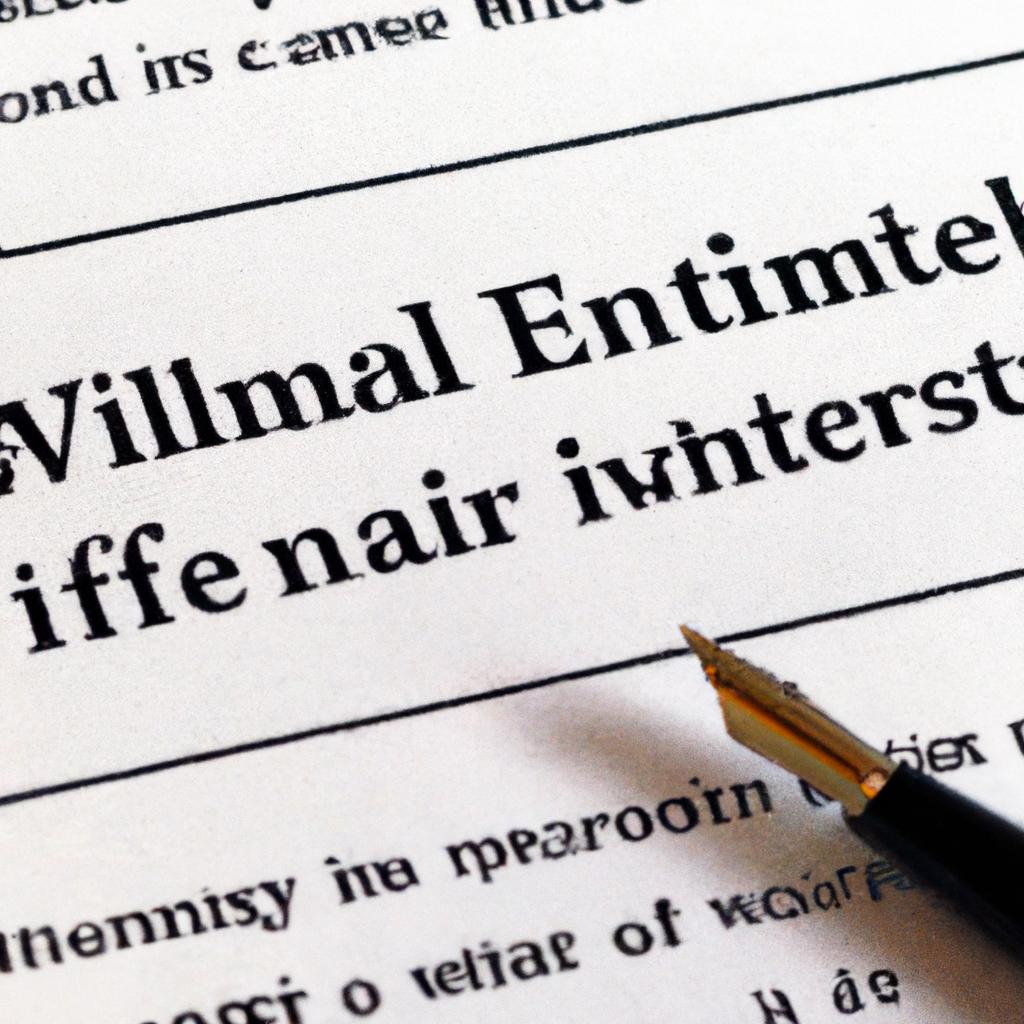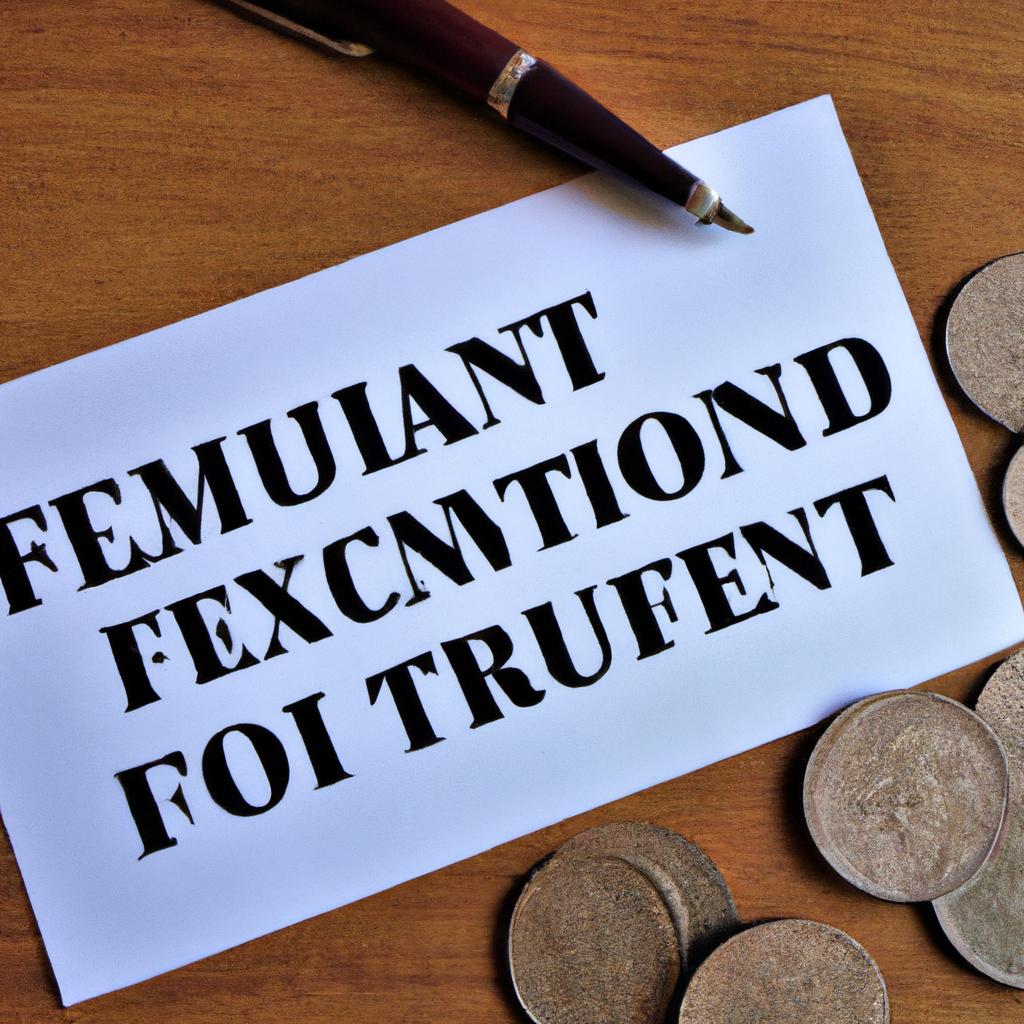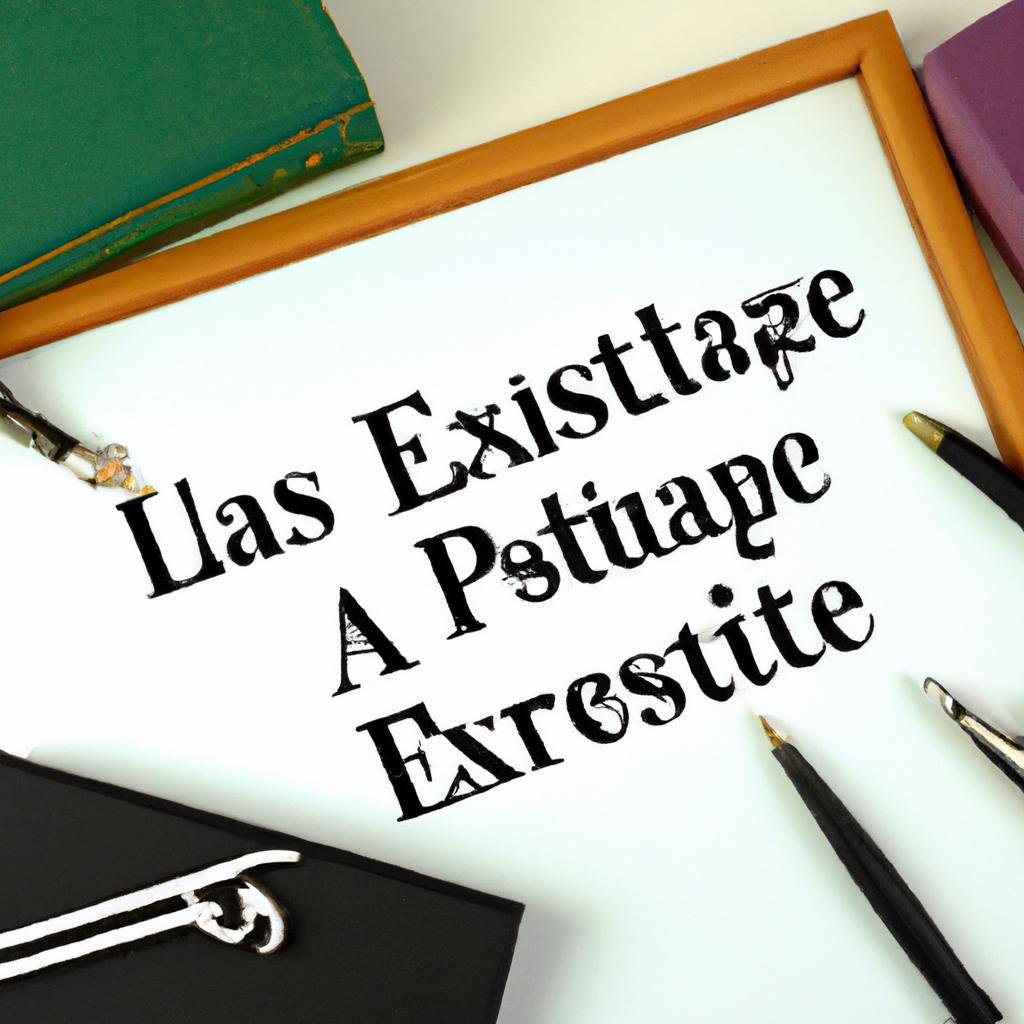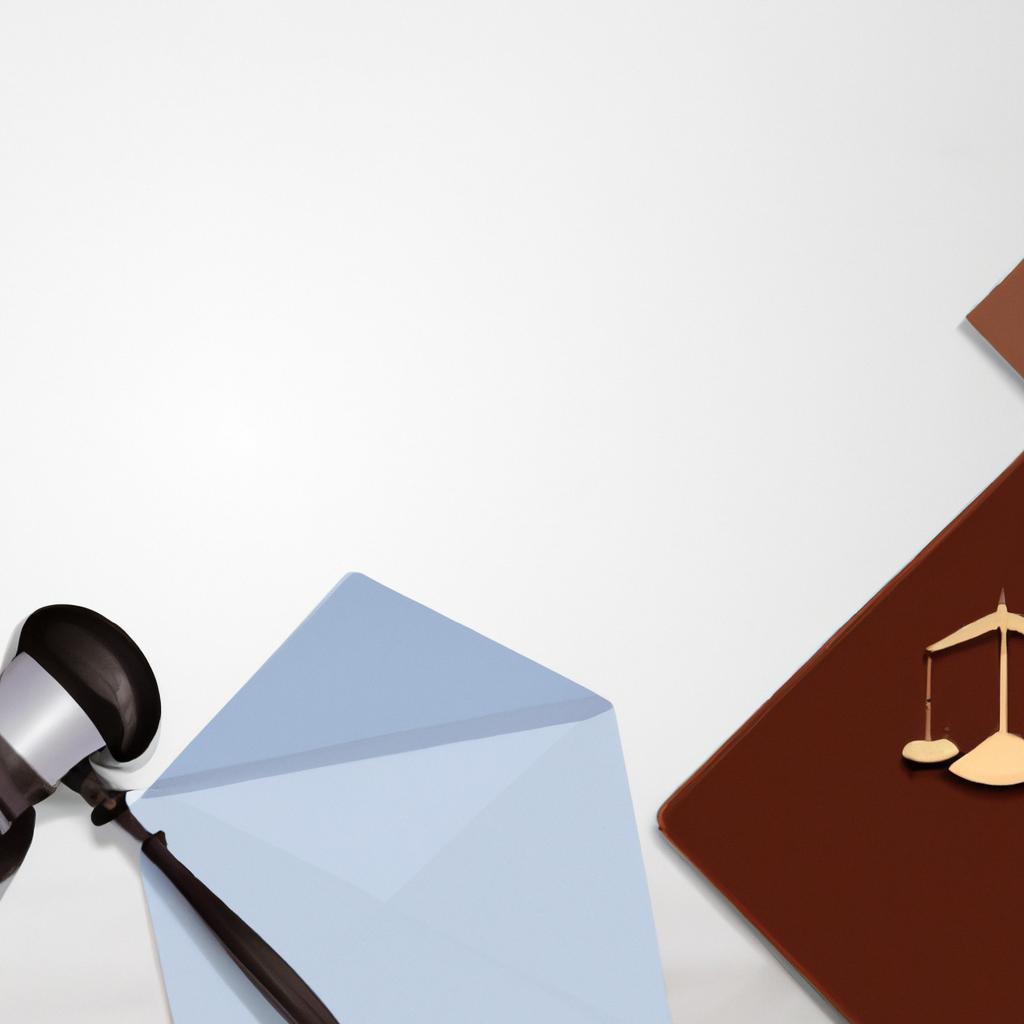In the intricate web of estate planning, few tools are as essential and versatile as wills and trust funds. These legal instruments serve as pillars of security, ensuring the orderly transfer of assets and the preservation of a legacy for generations to come. At Morgan Legal Group in New York City, we specialize in navigating the complexities of estate planning, probate, elder law, and the delicate intricacies of wills and trusts. Join us in exploring the intricate dance between legality and legacy in this enlightening discussion on wills and trust funds.
Understanding the Importance of Creating a Will
Creating a will is a crucial step in planning for the future and ensuring that your assets are distributed according to your wishes. By outlining who will inherit your property, money, and possessions, you can avoid disputes and confusion among your loved ones. A will allows you to designate beneficiaries, appoint guardians for minor children, and even specify funeral arrangements.
Furthermore, establishing a trust fund can provide additional benefits by allowing you to control how your assets are managed and distributed even after your passing. Trust funds can offer protection from taxes and creditors, as well as ensure that your beneficiaries receive their inheritance in a structured and responsible manner. By working with experienced professionals like Morgan Legal Group in New York City, you can rest assured that your estate planning needs are handled with precision and care.

Maximizing the Benefits of Establishing a Trust Fund
When it comes to estate planning, establishing a trust fund can be an invaluable tool for maximizing the benefits for your loved ones. By creating a trust fund, you can ensure that your assets are managed and distributed according to your specific wishes, providing financial security for your beneficiaries.
One of the key advantages of setting up a trust fund is the ability to avoid the lengthy and costly probate process. By transferring your assets into a trust, you can help your loved ones avoid the potential delays and expenses associated with probate court. Additionally, a trust can offer privacy and flexibility in how your assets are managed and distributed, allowing you to customize your estate plan to best suit your individual needs.

Navigating the Complexities of Estate Planning Laws
When it comes to estate planning, understanding the intricacies of wills and trust funds is essential. Wills are legal documents that detail how a person’s assets and property should be distributed after their death. Trust funds, on the other hand, are legal arrangements that allow a third party, or trustee, to hold assets on behalf of a beneficiary. Navigating the complexities of these legal instruments requires careful consideration and expert guidance to ensure that your wishes are carried out effectively.
Creating a will is a vital step in estate planning, as it provides clear instructions on how your assets should be managed and distributed. Trust funds can offer additional benefits, such as avoiding probate, minimizing estate taxes, and ensuring privacy for your beneficiaries. Understanding the differences between wills and trust funds, as well as the legal requirements for each, is crucial in developing a comprehensive estate plan that meets your specific needs and goals.

Key Considerations for Choosing Executors and Trustees
When selecting executors and trustees for your estate, it is essential to carefully consider their qualifications and capabilities. These individuals will be responsible for carrying out your wishes and managing your assets, so it is crucial to choose individuals who are trustworthy, responsible, and capable of handling complex financial matters. It is also important to consider the relationships between potential executors and trustees, as conflicts or disagreements can arise if there is tension or animosity between the individuals chosen.
:
- Trustworthiness and reliability
- Financial acumen and experience
- Availability and willingness to fulfill duties
- Ability to work well with other family members or beneficiaries
- Understanding of estate laws and regulations
Q&A
Q: What is the difference between a will and a trust fund?
A: A will is a legal document that outlines how a person’s assets and belongings should be distributed after they pass away, while a trust fund is a legal entity that holds assets on behalf of one or more beneficiaries.
Q: Why should I consider creating a will or trust fund?
A: Creating a will ensures that your wishes are carried out after you pass away, while a trust fund can provide ongoing financial support for loved ones or charitable causes.
Q: What is the process of creating a will or trust fund?
A: To create a will, you typically need to outline your wishes for asset distribution and appoint an executor to carry out your wishes. To create a trust fund, you need to appoint a trustee to manage the assets on behalf of the beneficiaries.
Q: Are there any tax benefits to creating a trust fund?
A: Trust funds can provide tax benefits for beneficiaries, as they may be able to receive assets without incurring estate taxes.
Q: Can I change my will or trust fund after it has been created?
A: Yes, you can update your will or trust fund at any time to reflect changes in your financial or personal circumstances.
Q: What happens if I don’t create a will or trust fund?
A: If you do not create a will or trust fund, your assets may be distributed according to state laws, which may not align with your wishes.
In Retrospect
As you navigate the complex world of wills and trust funds, remember that careful planning today can provide peace of mind for your loved ones tomorrow. Whether you are considering passing on assets or protecting your estate, seeking professional guidance is essential. By taking the necessary steps now, you can ensure that your wishes are carried out as intended and leave a lasting legacy for future generations. Stay informed, stay prepared, and stay empowered in securing your financial future. Thank you for reading.
 The topic of wills and trust funds may seem intimidating and overwhelming, but it is an important legal concept that everyone should understand. Wills and trust funds are critical tools for protecting your assets and ensuring that your final wishes are carried out after your passing. In this article, we will delve into the world of wills and trust funds, explaining what they are, how they work, and the benefits of having them in place.
The topic of wills and trust funds may seem intimidating and overwhelming, but it is an important legal concept that everyone should understand. Wills and trust funds are critical tools for protecting your assets and ensuring that your final wishes are carried out after your passing. In this article, we will delve into the world of wills and trust funds, explaining what they are, how they work, and the benefits of having them in place.
What is a Will?
A will, also known as a “last will and testament”, is a legal document that outlines how a person’s assets will be distributed after their death. It is a critical tool for ensuring that your property and possessions are legally transferred to your chosen beneficiaries.
A will typically contains several key components, including:
– Executor: This is the person responsible for managing the distribution of your assets and carrying out your final wishes as outlined in your will. It is important to choose someone you trust and who is capable of handling such responsibilities.
– Beneficiaries: These are the individuals or organizations who will receive your assets after your passing. They can be family members, friends, charities, or anyone you choose.
– Assets: Your will should specify all of your assets, including but not limited to:
– Real estate properties
– Bank accounts
– Investments
– Personal possessions
– Business interests
– Digital assets (e.g. online accounts, social media profiles)
Why is Having a Will Important?
Having a will is crucial for several reasons, including:
1. Ensuring Your Wishes Are Followed
A will ensures that your assets are distributed according to your wishes. Without a will, your property could be distributed based on state laws, which may not align with your preferences.
2. Protecting Your Children
If you have minor children, a will allows you to appoint a guardian to care for them in the event of your passing. Without a will, the court will determine who will care for your children, which may not align with your wishes.
3. Minimizing Conflict
A will can help prevent disputes among family members over the distribution of your assets, minimizing the potential for resentment or legal battles.
4. Saving Time and Money
Having a will in place can speed up the process of distributing your assets and save your loved ones time and money. Without a will, the legal process can be lengthy and costly.
5. Protecting Unmarried Couples
In the event of an unmarried couple, a will is crucial to ensure that the surviving partner receives their fair share of the assets.
What is a Trust Fund?
A trust fund is a legal entity that holds and manages assets on behalf of the beneficiary, who will eventually receive the assets at a designated time. Trust funds are often used to manage and protect assets for minors or individuals who may not be capable of managing their own finances.
A trust fund typically involves three parties:
– Grantor/Settlor: The individual who creates the trust fund and transfers their assets into it.
– Trustee: The person or entity responsible for managing the trust fund and its assets.
– Beneficiary: The individual who will receive the assets from the trust fund.
Types of Trust Funds
There are several types of trust funds, each serving a specific purpose:
1. Revocable Trust
A revocable trust can be altered or terminated by the grantor during their lifetime. This type of trust allows for flexibility and control over assets, but it does not offer asset protection from creditors.
2. Irrevocable Trust
An irrevocable trust cannot be modified or terminated once it is created. This type of trust offers more protection from creditors and can have tax benefits, but it also limits the grantor’s control over the assets.
3. Living Trust
A living trust, also known as an inter-vivos trust, is created during the grantor’s lifetime and is typically used to avoid probate (the legal process of distributing assets after death) and keep their affairs private.
4. Testamentary Trust
A testamentary trust is created through a will and takes effect after the grantor’s death. This type of trust is often used to provide for minor children or individuals with special needs.
Benefits of Trust Funds
There are several benefits to having a trust fund, including:
1. Asset Protection
A trust fund can protect assets from creditors, lawsuits, and other legal claims.
2. Efficient Asset Distribution
Trust funds can help avoid the lengthy and costly probate process, allowing for the efficient distribution of assets to beneficiaries.
3. Flexibility
With a revocable trust, the grantor retains control over their assets and can make changes as needed.
4. Tax Benefits
Certain types of trusts can have significant tax benefits for the grantor and the beneficiaries, making it an attractive estate planning option.
Do You Need Both a Will and a Trust Fund?
While both wills and trust funds are essential legal documents for estate planning, they serve different purposes and can work together to provide comprehensive protection for your assets. A will is generally used to distribute assets after death, while a trust fund can hold and manage those assets during your lifetime.
Having both a will and a trust fund can provide added protection and flexibility for your assets. It is best to consult with a trusted attorney to determine which option is best for your specific situation.
Practical Tips for Creating a Will and Trust Fund
1. Consult with Attorneys
Creating a will and trust fund can be complex and often requires the assistance of legal professionals. Consulting with an attorney can ensure that your documents are properly drafted and executed.
2. Regularly Review and Update Your Documents
Life is constantly changing, and so are your assets and beneficiaries. It is crucial to regularly review and update your will and trust fund to ensure that they reflect your current wishes and circumstances.
3. Inform Your Loved Ones
Make sure to discuss your final wishes with your loved ones and let them know where to access your will and trust fund documents in the event of your passing.
Case Study: The Importance of Wills and Trust Funds
Let’s look at an example to understand the importance of wills and trust funds. John has recently passed away, leaving behind a substantial inheritance to his three children. Unfortunately, John did not have a will in place, and according to the state’s intestacy laws, his assets were divided equally among his children.
However, John would have preferred to leave a larger share of his assets to his youngest child, who has special needs. If John had created a will and a trust fund, he could have designated specific assets and their distribution to each child, reducing the potential for conflict and ensuring that his youngest child receives the necessary care and support.
In summary, having a will and trust fund in place is crucial for protecting your assets and ensuring your final wishes are carried out. While the process of creating these legal documents may seem daunting, it is a small but worthwhile investment for the peace of mind it brings. So don’t wait, start planning for your future today.

